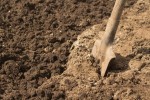Charles Arand
-
The 6th Day
One of my students who has an interest in the early church thought he had run across an indication that there were times when the…
-
James Cameron’s Deep Sea Dive
Read the original: Together with All Creatures blog: James Cameron’s Deep Sea Dive
-
Whooping Cranes & Drought
More: Together with All Creatures blog: Whooping Cranes & Drought
-
Visualizing the Anthropocene
In the last post, I mentioned a few examples of human influence on earth that have prompted many to now speak of the Anthropocene Epoch,…
-
And now…The Anthropocene Epoch, or The Age of Man
We’ve done it. We’ve remade creation according to our own needs, desires, and vision. And so it is now different than it has ever been…
-
How Shall We Live?
Seven billion people as of Oct 31, Reformation Day. The world’s population has more than doubled in my lifetime. For that matter, it’s increased three…
-
Easter 5 • John 14:1–11 • May 22, 2011
by Charles Arand “And That’s the Rest of the Story” [This text provides an excellent opportunity for instruction on the Trinity. The following provides a…
-

Reflections on a Soil Motif
Not too long ago scholars spoke of the story of salvation in the bible as “salvation- history .” In part this phrase meant that God…
-
Concordia Journal Currents – October 2010
Following up on the Summer Concordia Journal’s focus on our care of creation, an interview with Dr. Charles Arand…and a special tour of Concordia Seminary’s…
